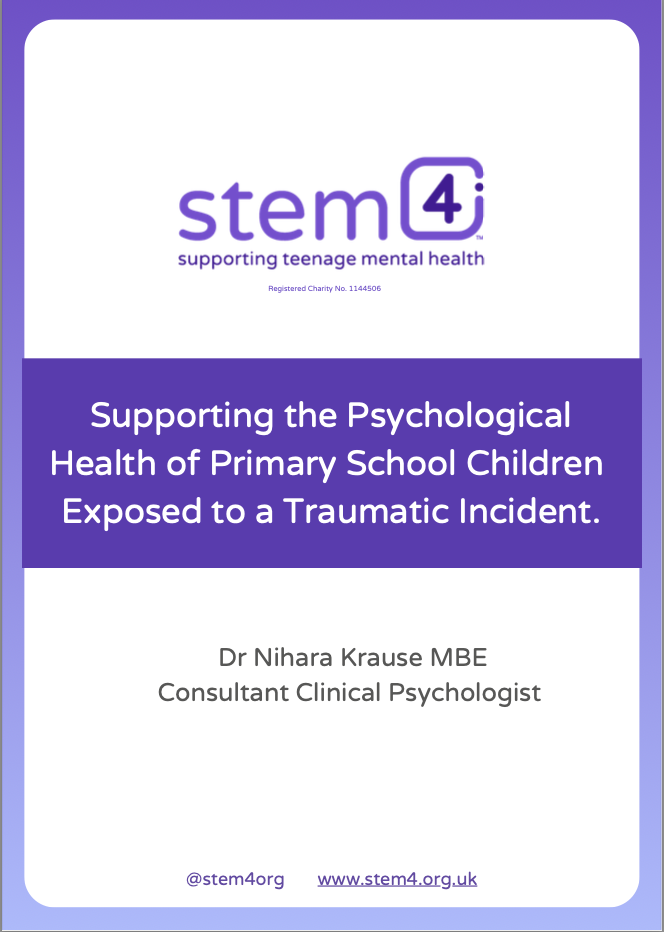
Children who are exposed to an acutely fearful or distressing situation where there is threat to life or serious injury, either directly or indirectly, may be considerably psychologically impacted.
Some signs that children display indicating they have been affected include experiencing repeated memories of the incident, difficulty sleeping, sometimes with nightmares and intense anxiety when faced with places, people or things related to the incident with a desire to avoid these at all costs. They may be easily startled, agitated, and revert to behaviours that they carried out when they were younger, particularly comfort behaviours such as, for example, sucking their thumb.
The symptoms described above are related to a psychological difficulty called post-traumatic stress disorder (PTSD) that can arise following trauma exposure. Whilst PTSD symptoms may be part of normal recovery, if children still have significant symptoms by 3 months, they may benefit from psychological assessment and intervention. It is believed that around 10-20% of children and young people experience PTSD after exposure to a single incident of extreme trauma.
A key factor associated with improved psychological recovery is the extent to which children and young people feel supported by those around them. Parents, carers, and educators therefore play a key role in responding to the child or young person’s needs. It is also important that the adults who are also managing their own distress, either because they were involved in the same trauma or are relating to the child’s trauma get some psychological support themselves.
The below resource provides some guidance on steps adults supporting a child or young person experiencing post-traumatic distress can take. Since the age and experience of the child or young person is relevant, each section is also broken into developmentally appropriately responses.
Developing confidence in supporting a child or young person who is distressed is very helpful since there is no right or wrong way to support a child or young person, the tips provided are there for you to adapt to your child or young person’s individual needs as well as what works within the family and/or school system. Regular care, secure attention, accepting vulnerability, exploring inner strengths and a focus on safety will provide children and young people with the tools they need to make psychological recovery from trauma.



